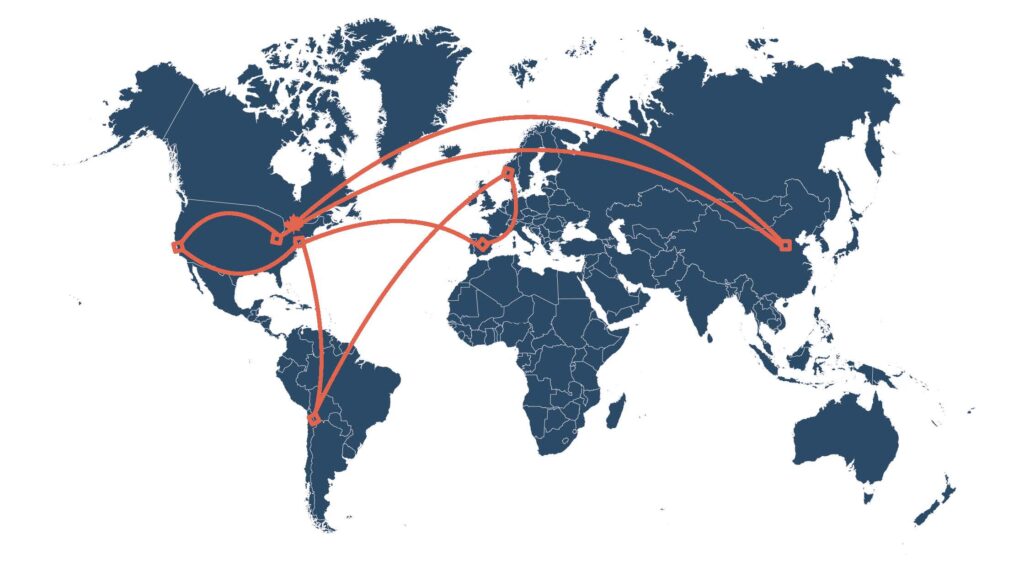Welcome back to the fourth edition of The Fifteen As usual, we’re taking a trip around the world of higher education to check in on the trends and stories that are shaping the sector. We’re heavy on US stories this week, but still some interesting tidbits from places as far afield as Chile, China, Spain and Norway. Enjoy!

- Evidence that China, despite its own university funding starting to decline in real terms, is starting to win out in the battle for global scientific talent: more of its own PhD students studying abroad are choosing to return home. University World News, More STEM PhDs come home as China’s global standing soars
- The NYT published a deep dive into Diversity, Equity and Inclusion at the University of Michigan that goes beyond the usual pro-con arguments. Parts of the story are eye-rolling, but it was a useful reminder that hiring new administrators and holding a lot of workshops aren’t, on their own, a reliable path to justice. Expect this one to be talked about for a while. New York Times, The University of Michigan Doubled Down on D.E.I. What Went Wrong? See also the excellent Tressie McMillan’s Cottom take on this on Tiktok/Instagram
- California joins a short but growing list of states banning legacy admissions. Soon, they will probably be phased out everywhere, but they’ve stuck around longer than they should have. Forbes, Two Cheers for California’s Ban on Legacy Admission.
- Free tuition juices demand, which in turn makes institutions more selective, a process favouring the already fortunate. And, as this article shows, it doesn’t always make graduates more inclined to pursue less-remunerative careers. While donations to post-secondary are a way we want rich people to spend their money, if they’re serious about equity-based results, access programs should probably stay targeted to the socio-economic disadvantaged. The Atlantic, the Perverse Consequences of Tuition-Free Medical School
- An article on higher education in Latin America focussing on its paradoxical mix of traditions: weak academic freedom and strong university autonomy. CambridgeCore, Latin American: Weak academic freedom within strong university autonomy.
- A must-read piece on how to put together lasting university-industry partnerships. Harvard Business Publishing Education, A New Model for University-Industry Partnerships.
- A new NBER paper looks at the role socioeconomic background plays in who becomes an “Academic Superstar.” It’s as bad as you think. National Bureau of Economic Research, Inequality in Science: Who Becomes a Star?
- The Biden administration has a new plan to recognize colleges for promoting student success by tracking completion rates. Not everyone is sold on it. Inside Higher Education, How U.S. Plans to Recognize Colleges for Student Success.
- Forget college rankings; this report ranks university and college presidents based on their track record on improved access, affordability, and student success. American Enterprise Institute, A Crisis in Leadership? Examining the Successes and Failure of University Presidents.
- We’ve got some conflicting narratives on US enrollment data. IHE reports the first decline in first-year enrollment since the pandemic, but enrollment is up in other places, notably community colleges. Inside Higher Education, First-Year Enrollments Take a Tumble. & Bryan Alexander, New higher education enrollment numbers: a mixed bag.
- Norway is the latest European country to see major proposed cuts to the sector. Research and student aid are often first to go, and the researchers and students are protesting. University World News: Anger over proposed cuts to HE, research, and education aid.
- In Spain, there’s an ongoing and spiralling scandal relating to the conduct of the Rector of the University of Salamanca. Springer Nature has just yanked several dozen of his papers based on the existence of a ridiculously extensive citation ring. El Pais, Springer Nature retracts 75 studies by Spanish rector and his collaborators for fraudulent practices.
- A nice historical piece from the early days of peer review. Nature, The early days of peer review: five insights from historical reports.
- Some interesting thoughts on the relationship between Open Educational Resources and Generative AI. Open Content, How Generative AI Affects Open Educational Resources.
- Another piece from the Atlantic counters the typical narrative that AI, like ChatGPT, is “the end of the essay,” which always seemed a little dramatic. It turns out that lots of students with writing degrees actually want to write. The Atlantic, CHATGPT VS THE HONOR CODE.

 Tweet this post
Tweet this post
